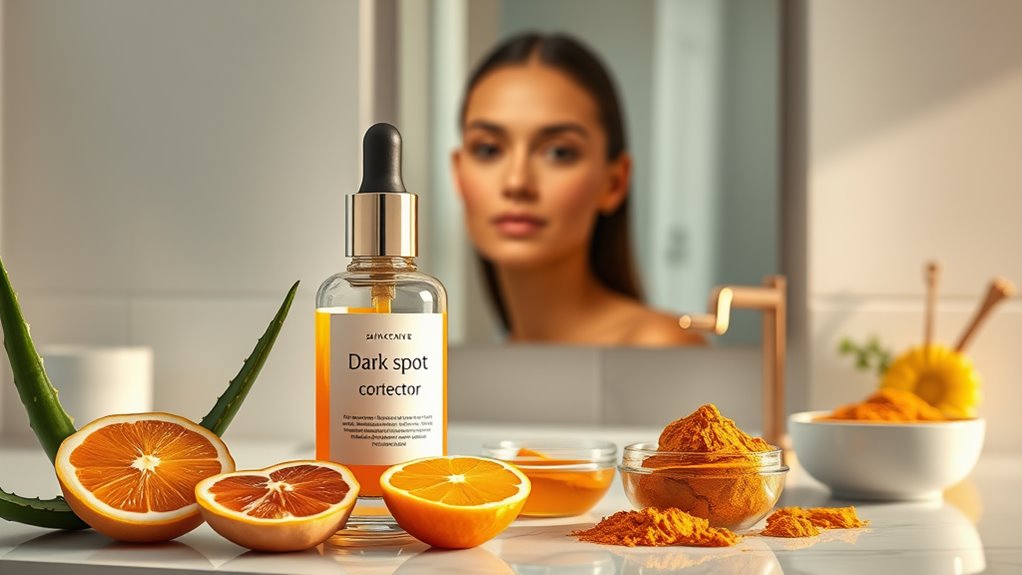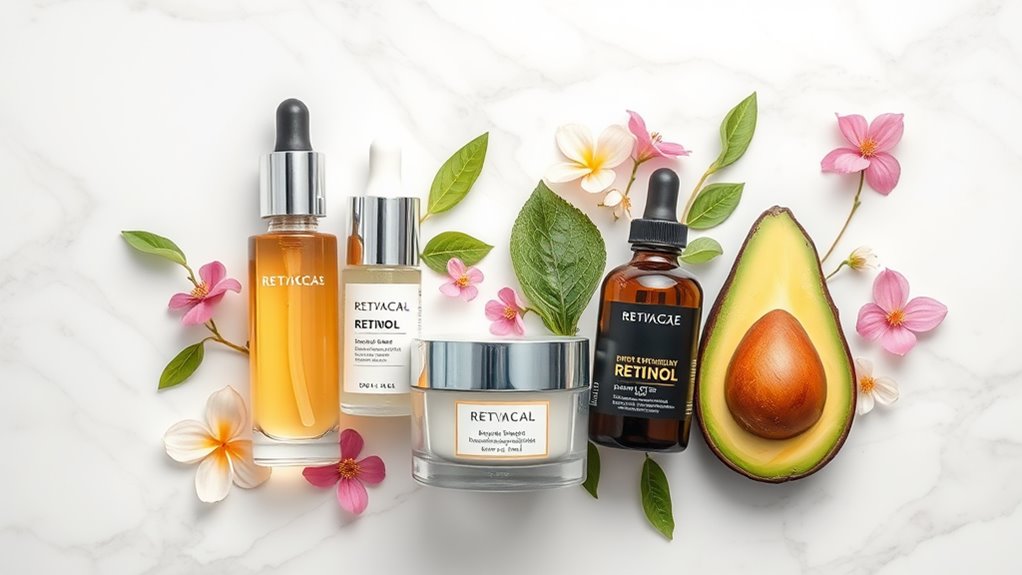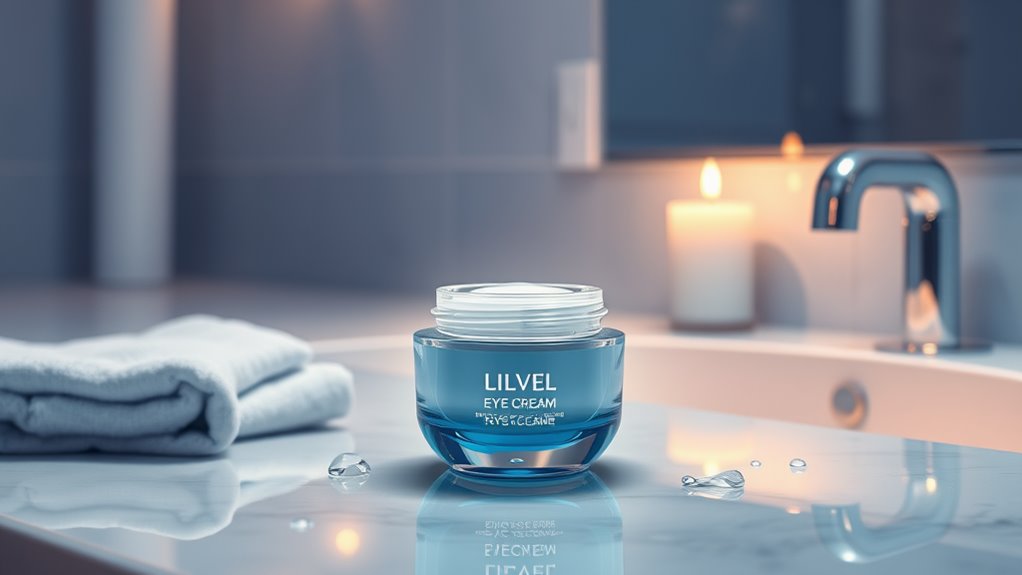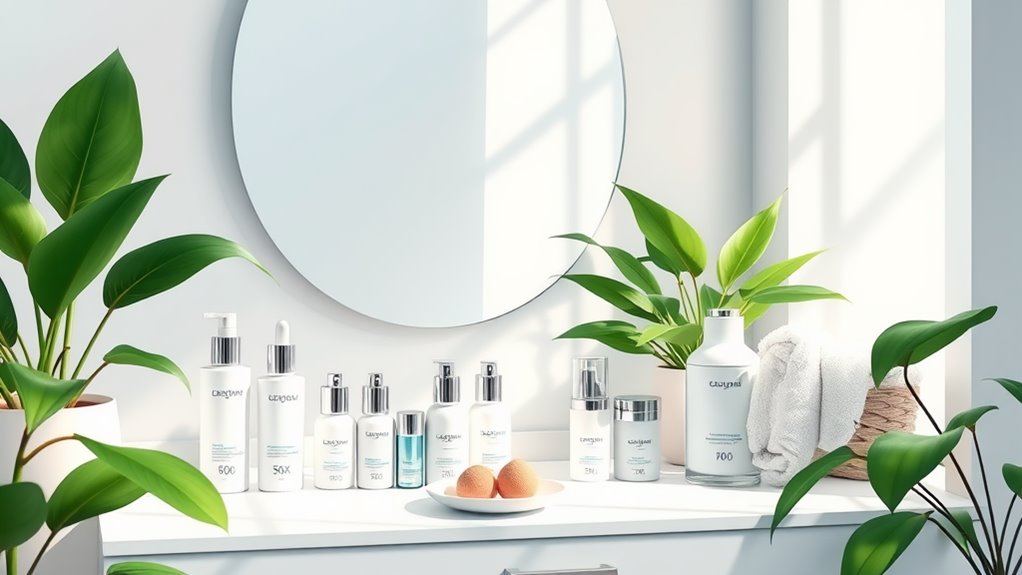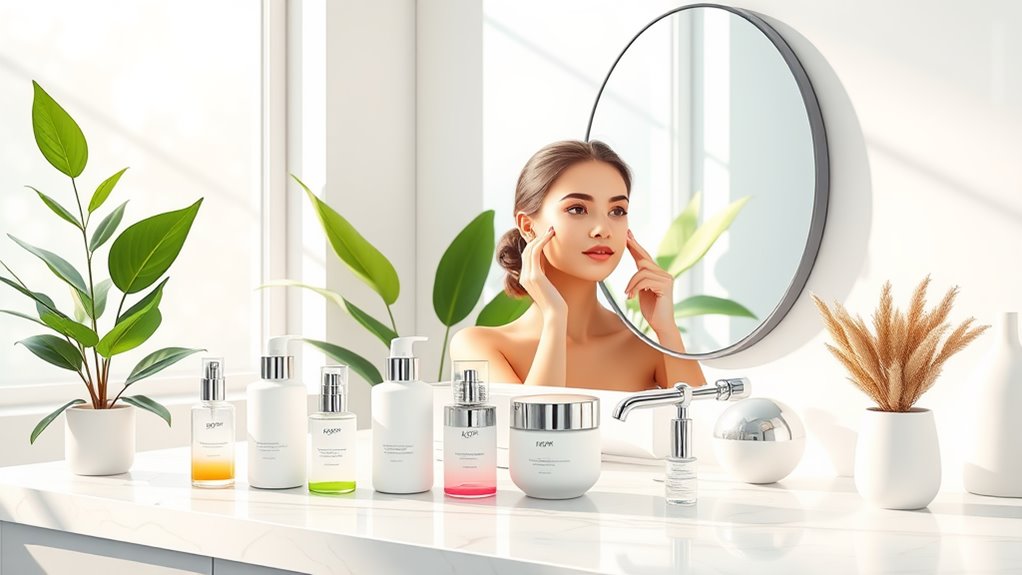The Secret to Fading Dark Spots You’ve Never Heard Of
If you’re struggling with dark spots and haven’t considered papaya enzymes, it’s time to rethink your approach. These natural exfoliators can work wonders by promoting cell turnover and revealing brighter skin. When paired with powerful allies like niacinamide and vitamin C, they can take your skincare routine to the next level. Curious about how to incorporate this secret ingredient and see real results? Let’s explore the transformative potential of papaya enzymes together.
Key Takeaways
- Incorporate licorice root extract into your skincare regime to inhibit melanin production and reduce dark spots effectively.
- Utilize vitamin C serums daily to brighten skin and even out tone, revealing a more radiant complexion.
- Regularly exfoliate with papaya enzymes to promote cell turnover, enhancing skin texture and reducing dark spots.
- Explore professional treatments like microneedling and laser therapy, which target pigmentation and stimulate collagen for better skin appearance.
- Maintain consistent sun protection with broad-spectrum sunscreen to prevent further dark spot formation and protect your skin’s health.
Innovative Natural Ingredients for Skin Brightening
As you explore options for skin brightening, you’ll find that innovative natural ingredients hold the key to achieving a radiant complexion. Harnessing the power of nature can help you effectively target dark spots without harsh chemicals.
Look for ingredients like licorice root extract, known for its ability to inhibit melanin production, or vitamin C, which brightens skin and evens tone. Niacinamide, derived from vitamin B3, is another powerhouse that reduces inflammation and minimizes the appearance of dark spots.
Additionally, consider using papaya enzymes, which gently exfoliate and promote cell turnover. By incorporating these natural ingredients into your skincare routine, you’ll not only fade dark spots but also enhance your skin’s overall luminosity and health, empowering you to achieve that enviable glow. Furthermore, specific ingredients such as green tea extract are recognized for their antioxidant properties that can further help in brightening the skin.
Professional Treatments That Deliver Results
While natural ingredients play an essential role in brightening your skin, professional treatments can amplify those results and tackle stubborn dark spots more aggressively.
Dermatologists often recommend chemical peels, which exfoliate the outer layer of skin, revealing a fresher, more even complexion beneath. Laser therapy is another powerful option; it targets pigmentation directly, breaking down dark spots at the source.
Microneedling stimulates collagen production, enhancing your skin’s texture and tone over time. For immediate results, consider intense pulsed light (IPL) therapy, which reduces discoloration effectively. Including scientifically-proven methods in your skincare routine can significantly enhance the effectiveness of these treatments.
Each treatment offers unique benefits, so consult with a skincare professional to identify the best strategy for your specific concerns. With the right approach, you’ll master the art of achieving radiant, spot-free skin.
Daily Habits to Prevent Dark Spots
To keep dark spots at bay, adopting daily habits is essential for maintaining an even skin tone.
Start your day with a gentle cleansing routine to remove impurities and prep your skin for treatment. Incorporate serums rich in antioxidants and brightening agents, like vitamin C, to combat discoloration.
Stay hydrated; drinking plenty of water helps maintain skin elasticity and radiance. Regularly exfoliate, but don’t overdo it—aim for 2-3 times a week to slough off dead skin cells without irritation.
Finally, prioritize a balanced diet packed with fruits and vegetables, as their nutrients support skin health. Additionally, avoiding chronic stress is key, as it can lead to skin issues, including dark spots.
The Role of Sun Protection in Skin Health
Protecting your skin from the sun is a fundamental step in maintaining its health and preventing dark spots. Consistent sun protection not only shields you from harmful UV rays but also enhances your skin’s overall tone and texture. Here’s a quick reference table to help you understand sun protection options:
| Protection Method | SPF Rating | Duration of Effect |
|---|---|---|
| Broad-Spectrum Sunscreen | 30 or higher | 2 hours (reapply often) |
| Protective Clothing | N/A | All-day coverage |
| UV-Blocking Sunglasses | N/A | All-day coverage |
Incorporating these strategies into your daily routine will empower you to achieve healthier, more radiant skin while effectively minimizing dark spots. Additionally, avoiding common daily habits that accelerate skin aging can further enhance your skin’s appearance. Stay vigilant, and your skin will thank you!
Understanding Hyperpigmentation and Its Causes
Hyperpigmentation occurs when your skin produces excess melanin, leading to dark spots or patches that can be frustrating to deal with. Various factors contribute to this condition, including sun exposure, hormonal changes, and inflammation.
When you expose your skin to UV rays, it triggers melanin production as a protective response. Hormonal fluctuations, particularly during pregnancy or from birth control, can also lead to melasma, a specific type of hyperpigmentation.
Additionally, skin injuries or acne can cause post-inflammatory hyperpigmentation, leaving dark marks long after healing. Understanding these triggers is essential for effective prevention and treatment.
Frequently Asked Questions
Can Diet Influence the Appearance of Dark Spots on Skin?
Yes, your diet can greatly influence dark spots on your skin. Incorporating antioxidant-rich foods, staying hydrated, and avoiding excessive sugar can help promote a clearer complexion and reduce the appearance of those stubborn spots.
Are There Specific Skin Types More Prone to Dark Spots?
Yes, certain skin types, especially those with higher melanin levels, like darker complexions, are more prone to dark spots. If you’ve got oily or sensitive skin, you’re also at risk, so take precautions accordingly.
How Long Does It Typically Take to See Results From Treatments?
Typically, you’ll start noticing results from treatments within four to six weeks. Consistency is key, so stick with your routine and be patient. Remember, everyone’s skin reacts differently, so results may vary.
What Are Common Misconceptions About Fading Dark Spots?
You might think all treatments work the same or that results appear overnight. In reality, fading dark spots takes time and consistency. Not all products suit everyone’s skin, so personalized solutions are key for effective results.
Can Stress Contribute to the Development of Dark Spots?
Yes, stress can contribute to dark spots by triggering hormonal changes that affect your skin. When you’re stressed, your body produces cortisol, leading to inflammation and pigmentation issues. Managing stress is essential for maintaining healthy skin.
Conclusion
Incorporating papaya enzymes into your skincare routine can be a game-changer for fading dark spots. When combined with niacinamide and vitamin C, these natural exfoliators boost cell turnover and brighten your complexion. Remember, daily habits and sun protection play crucial roles in preventing further dark spots. By understanding hyperpigmentation and taking proactive steps, you can achieve the radiant skin you’ve always wanted. Start today, and let your skin’s natural beauty shine through!

